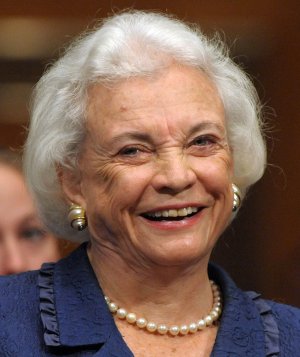

The Senate confirmed the appointment on September 21, 1981, making O’Connor the first female Associate Justice in the history of the Court. President Ronald Reagan nominated O’Connor to the Supreme Court of the United States on August 19, 1981. O’Connor was elected to the Maricopa County Superior Court in 1975 and appointed to the Arizona Court of Appeals in 1999. Editor's note: This is the seventh of The Arizona Republic 's 11-chapter profile of retired Supreme.

Twice re-elected, she was majority leader of the State Senate from 1973 to 1974. Spectacle of Sandra Day O'Connor's 1981 confirmation hearing foreshadowed today's politics. She was appointed to the Arizona State Senate in 1969 to fill an unexpired term, and the following year she was elected to the State Senate. Upon her return to the United States, O’Connor engaged in private law practice. She moved to Germany and worked as a civilian attorney for the United States Army in Frankfurt from 1954 to 1957. After graduation, O’Connor became a Deputy County Attorney of San Mateo, California. She was graduated from Stanford University in 1950 and Stanford University Law School in 1952.
SANDRA DAY O’CONNOR was born in El Paso, Texas, on March 26, 1930. Barry Goldwater replied, “I think every good Christian ought to kick Falwell’s ass.” Jerry Falwell recommended that “good Christians” should oppose Sandra Day O’Connor’s nomination to the Supreme Court, to which Sen. 668, at 687 (1984), concurring opinion by Sandra Day O’Connor. “The Establishment Clause prohibits government from making adherence to a religion relevant in any way to a person’s standing in the political community.” Lynch v.


 0 kommentar(er)
0 kommentar(er)
